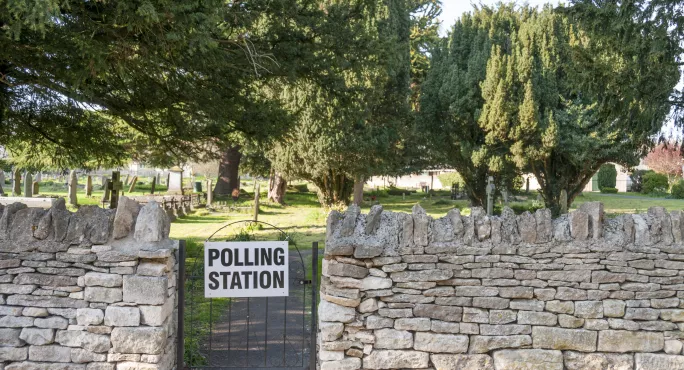Election officials have accused the education secretary of a “complete lack of knowledge and understanding” after he called for disruption to schools caused by polling day to be kept to a minimum.
Schools up and down the country are typically used as polling stations and there are fears that the date of the general election - 12 December - could throw their nativity plays and Christmas concerts into disarray.
Background: DfE ‘Grinch fund’ to save Xmas plays from election
Election 2019: Tories hope to cash in on school funding
Election 2019: Lib Dems to scrap Sats and league tables
Earlier this week, Gavin Williamson announced that he had written to council leaders asking them to do anything they can to avoid disruption to school Christmas activities, with funding made available to help councils find alternative polling venues.
But a row is now brewing over the issue, with the Association of Electoral Administrators (AEA) writing to the cabinet minister to express their “extreme disappointment” at his call.
The AEA, which represents the officers responsible for running elections, wrote: “We have received universally concerned feedback this morning about the complete lack of knowledge and understanding demonstrated in your letter as to how challenging it is to deliver an election at short notice, particularly when Parliament set the date of poll in December with all the associated issues a winter election brings.”
The stinging letter describes Mr Williamson’s intervention as “unhelpful”, saying officers “question why this letter was sent out so late”.
Most polling stations have already been booked - work that needed to be done urgently as there is a legal duty on returning officers to send out polling cards as soon as possible, it says.
The letter, signed by AEA chief executive Peter Stanyon, also challenges Mr Williamson’s assertion that “in every community there will be alternatives” that can be used as polling stations, arguing that this is not the case and in many parts of the UK, especially rural areas, there are “simply no alternatives to the venues designated as polling places”.
It concludes: “We recognise the inconvenience that this election will cause, none of it the fault of returning officers and their employing local authorities, and every effort is being made by the electoral community to work with schools and other public premises to mitigate those difficulties.
“However, the simple truth of the matter is that, when Parliament decided to hold the poll in December at short notice, significant and unintended consequences followed.”
Early findings from a PA news agency survey suggest that some councils are considering taking up Mr Williamson’s offer of funding.
Bath and North East Somerset Council said it will be taking up the offer, and that it is attempting to find alternative venues so that schools can remain open on polling day. It has found two community centres and a pub that can be used.
As it stands, eight schools are being used as polling stations, two of which will close for the day, the council said.
Portsmouth City Council said it is considering whether to take up the funding offer. It used 17 schools as polling stations in the 2017 general election and will be using 14 this year.
Headteachers make the decision on whether to close a school, a spokesman said.
Bracknell Forest Council said it will not be taking up the funding and that it uses very few schools for polling - three are due to be used for the forthcoming general election, with two closing.
There have been a number of reports of schools being forced to cancel events due to polling day.
Jess Phillips, Labour parliamentary candidate for Birmingham Yardley, tweeted that she had been contacted by a parent to say that a primary school “is having to stop their Christmas fete which was to raise funds because of cuts, because the school will be a polling station”.
The Association of School and College Leaders has suggested it is time to review whether schools are suitable venues to use as polling stations.




